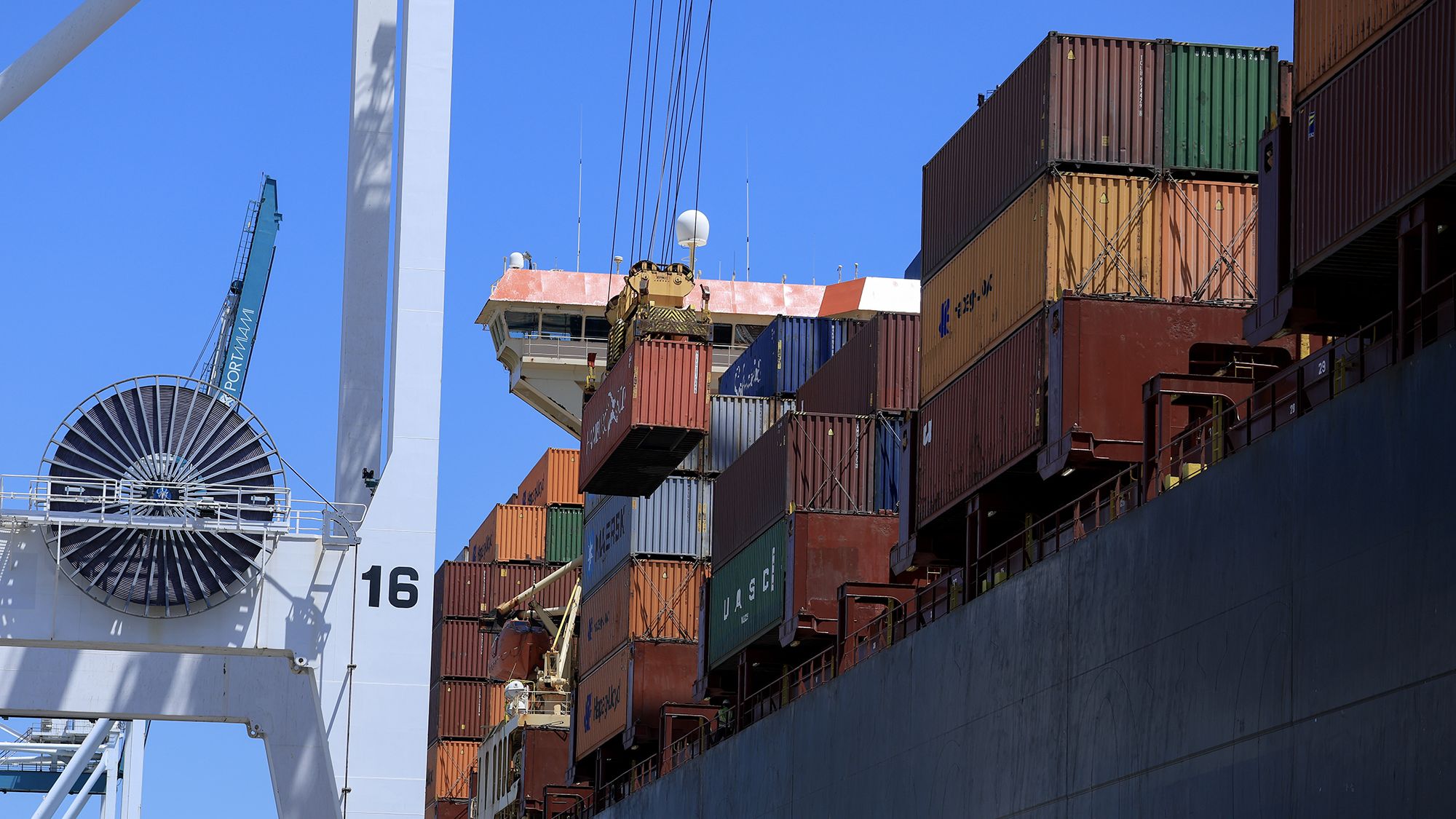## Game Over for Trump’s Tariffs? Appeals Court Throws Down the Gauntlet
Hold onto your controllers, gamers. The fight over Trump-era tariffs just got a whole lot more interesting. Remember those hefty import taxes that jacked up the price of your favorite gaming gear?

Beyond the Headlines: Exploring Trump’s Full Tariff Arsenal

President Donald Trump’s trade policies have sent ripples through the global economy, and the gaming industry hasn’t been immune. While the recent court decision allows Trump’s heftiest tariffs to take effect pending appeal, it’s crucial to understand the full scope of his tariff arsenal and its potential impact on the gaming sector.
Trump has employed a multi-pronged approach to tariffs, leveraging various legislative tools to increase import costs. His most significant move involved invoking the International Emergency Economic Powers Act (IEEPA) to impose sweeping tariffs on a wide range of goods, including electronics, appliances, and components, claiming a national emergency due to persistent trade deficits and drug trafficking.
However, this isn’t Trump’s only weapon. He has also utilized Section 232 of the Trade Expansion Act, which grants the president broad power to impose tariffs on specific sectors deemed a national security threat. This has led to increased tariffs on aluminum, steel, cars, and car parts, impacting various industries, including gaming, which relies heavily on these materials for hardware manufacturing.
Furthermore, Trump has threatened “reciprocal” tariffs, aimed at countries perceived as engaging in unfair trade practices or facilitating illegal immigration and drug trafficking. These proposed tariffs target goods from Mexico, Canada, and China, potentially raising costs for gaming companies sourcing components or software from these regions.

The Domino Effect: How Tariffs Impact the Gaming Supply Chain
The gaming industry operates within a complex global supply chain, with components, manufacturing, and distribution spanning multiple countries. Tariffs can disrupt this delicate web, leading to cascading effects throughout the sector.
Increased Production Costs
Tariffs on imported goods directly increase production costs for gaming hardware manufacturers. This can lead to higher prices for consumers, potentially squeezing profit margins and affecting sales.
Sourcing Challenges
Tariffs can incentivize companies to shift sourcing away from affected regions, creating challenges for finding alternative suppliers and navigating new logistics networks. This can lead to delays, supply shortages, and increased costs.
Innovation Disruption
Tariffs can stifle innovation by making it more expensive to develop and introduce new products. The added financial burden can discourage investment in research and development, potentially slowing the pace of technological advancements in the gaming industry.
Global Market Instability
The uncertainty surrounding tariffs creates a volatile environment for global trade, impacting investment decisions and consumer confidence. This can lead to market instability, affecting the growth and profitability of gaming companies worldwide.
Strategic Shifts: How Gaming Companies Are Navigating the Tariff Maze
Faced with the complexities of Trump’s tariff policies, gaming companies are implementing various strategies to mitigate their impact.
Price Adjustments
Some companies are absorbing the increased costs, while others are passing them on to consumers through price increases. This can lead to a decrease in demand and market share, particularly for price-sensitive segments.
Supply Chain Diversification
Companies are exploring alternative sourcing options, diversifying their supply chains to reduce reliance on regions subject to tariffs. This can involve expanding manufacturing operations to different countries or partnering with new suppliers.
Lobbying and Advocacy
Industry groups are actively lobbying for policy changes and engaging in public advocacy to address the negative impacts of tariffs on the gaming sector. This can involve working with lawmakers, providing economic analysis, and raising awareness about the issue.
Innovation and Technology
Companies are investing in research and development to find innovative solutions, such as developing new materials or manufacturing processes that reduce reliance on tariff-affected components. This can involve exploring 3D printing, robotics, and other advanced technologies.
A Summer Showdown: What to Expect from the Expedited Court Proceedings
The expedited court proceedings regarding Trump’s tariffs are set to conclude this summer, bringing a crucial turning point in the saga. The outcome of these proceedings will have significant implications for the gaming industry and the broader global economy.
Gamestanza will continue to closely monitor the developments in this case and provide our readers with comprehensive coverage of the proceedings, expert analysis, and insights into the potential impact on the gaming sector.
Gaming’s Global Future: How Tariffs Shape the International Gaming Landscape
The international gaming landscape is increasingly intertwined, with companies operating across borders and collaborating on projects. Tariffs can disrupt these international partnerships and hinder the growth of the global gaming market.
It remains to be seen how the ongoing trade tensions will ultimately shape the future of the gaming industry. However, it is clear that tariffs have the potential to significantly impact the global gaming landscape, making it essential for companies to adapt and navigate these complex challenges.
Beyond the Borders: Exploring Alternative Solutions for a Stable Gaming Market
While tariffs create significant challenges, there are alternative solutions that can promote a more stable and predictable gaming market.
- Strengthening multilateral trade agreements: Fostering cooperation and dialogue among nations can help reduce trade barriers and promote a more level playing field for all players in the gaming industry.
- Promoting responsible investment: Encouraging responsible investment in infrastructure, research and development, and education can create a more robust and resilient gaming ecosystem.
- Fostering innovation and technological development: Supporting the development of new technologies and business models can unlock new opportunities and create a more dynamic gaming market.
Gamestanza will continue to explore these alternative solutions and advocate for policies that promote a healthy and sustainable future for the gaming industry.
Conclusion
So there you have it: Trump’s tariffs, those controversial levies that shook the gaming industry and beyond, are staying put for the time being. The appeals court’s decision to expedite the case means we won’t have to wait long for a definitive answer, with a summer resolution seemingly on the horizon. While this delay provides a temporary reprieve, the core issues remain: the long-term impact of these tariffs on game prices, development costs, and consumer access, and the broader question of trade policy in a globalized industry. The gaming community, always on the edge of technological advancement and global connectedness, is keenly aware of the stakes. Tariffs can stifle innovation, limit choice, and ultimately raise the cost of the very entertainment we cherish. This case isn’t just about numbers on a spreadsheet; it’s about the future of gaming, its accessibility, and its ability to connect players across borders. As we wait for the final verdict, one thing is clear: the outcome will have ripple effects throughout the industry, shaping the landscape of gaming for years to come. The question is, will it be a landscape of opportunity and growth, or one of fragmentation and restriction? The answer, ultimately, lies in the hands of the courts.
